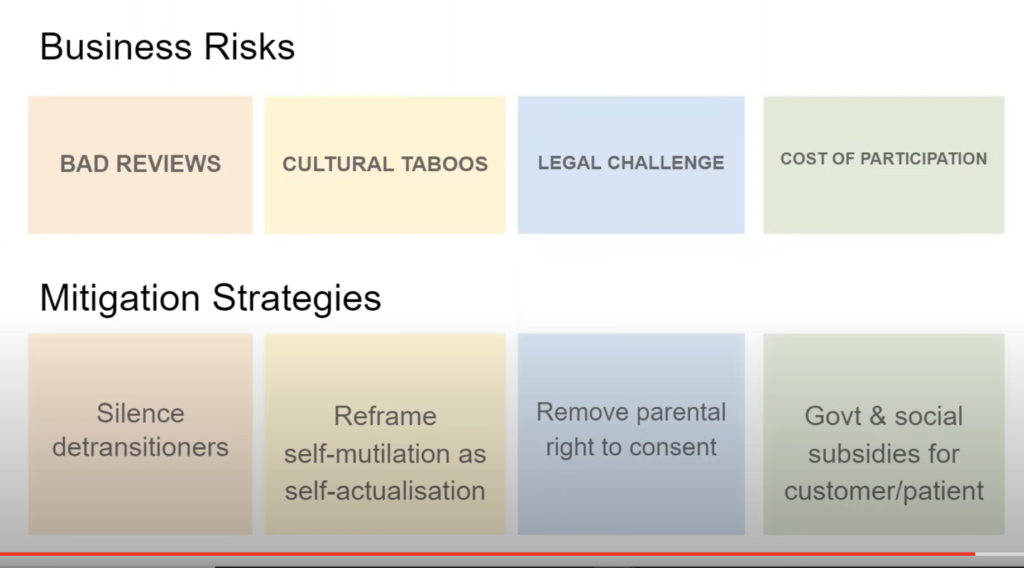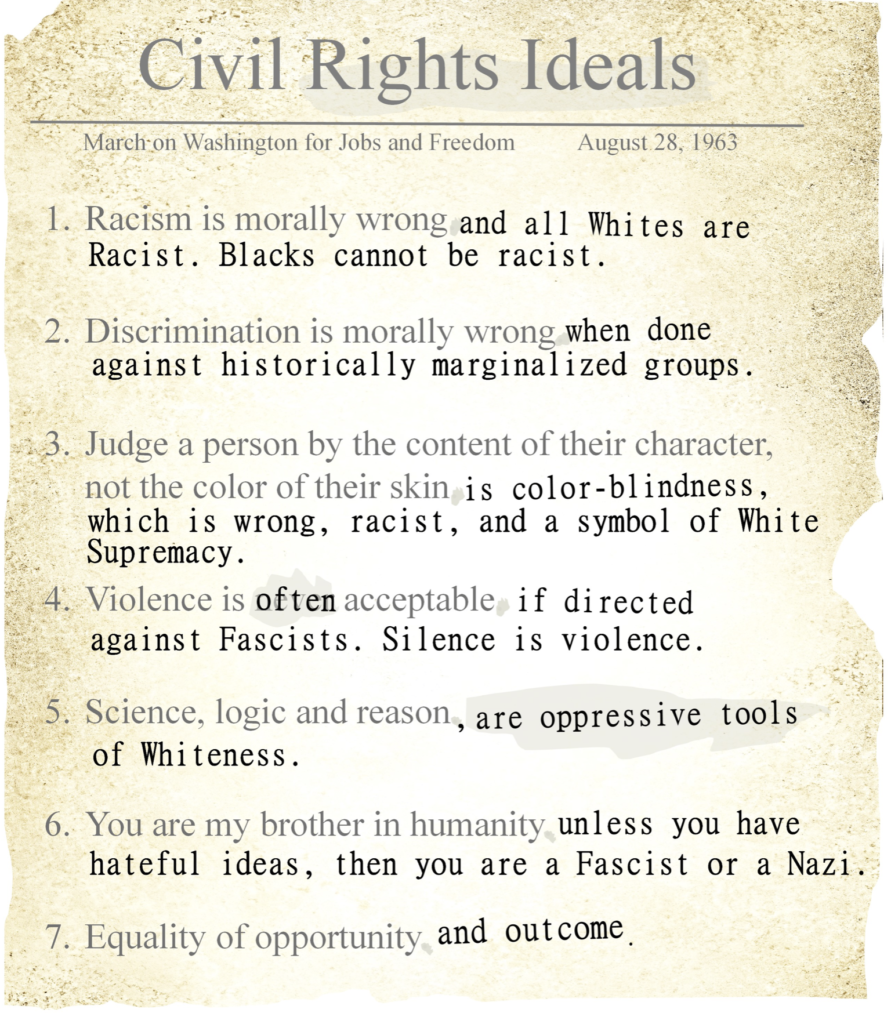The Business Model Driving Youth Transgender Treatment
To what extent are confused teenagers being used by profit-seekers? Catherine Karena of the "LGB Alliance," who has studied many other industries that create demand out of thin air, shines a light on what she terms the "Business Model of Youth Transitioning." She describes the products and services associated with transgender treatment as a 5.2 trillion dollar industry. Watching this video reminded me of the heyday of the tobacco industry.
Here is an excerpt from the opening minutes of this video:
I've studied and worked with tech startups for 21 plus years. Startups are different from established businesses they focus on growth and being game changers they look for a new and unique solution to a problem either a new solution to an old problem for example cds or the cassettes. Or they give you a solution to something you didn't even know was a need. For example when apple gave us the iPod. Or they redefiner problems, where they provide a different solution altogether.
The aim of any software startup is to become a unicorn achieving 1 billion revenue in the first year by aggressively opening up markets for a highly scalable product. Although we've heard that the huge increase in the transgender movement is a grassroots movement or social contagion human rights movement or a typical generational youth rebellion, I'll argue here that the heart of this movement is just business.
The gender identity phenomenon has achieved huge growth by creating a killer brand that can be accessed by consuming medical treatments. The target consumers of this product are teenagers who are forming their identities in an identity-obsessed world market demand is developed through viral marketing and underpinned by legal challenges and social advocacy in the background.
In Karena's model, the skyrocketing alleged rates of gender dysphoria are linked to crass money-making. First, consider the statistics regarding the rates of alleged gender dysphoria. I used the modifier "alleged" because gender dysphoria is often self-diagnosed in modern times. Consider that the DSM-5 In 2013, the DSM-5 estimated that about 0.005% to 0.014% of people assigned male at birth and 0.002% to 0.003% of people assigned female at birth were diagnosable with gender dysphoria. It is now 1000 times greater Consider this:
When [author Abigail] Shrier uses the term “craze,” she means it in the scientific sense. Rapid Onset Gender Dysphoria (ROGD) is what Dr. Lisa Littman calls a “social contagion,” and it primarily impacts young girls. Just a short time ago, only .002 percent to .003 percent of girls in the U.S. identified as transgender. Now, it is up to 2 percent, and Shrier told me that she believes the rate has spiked by thousands of percentage points (in the UK, the number of girls identifying as trans has risen by over 4000 percent). Most trans-identified youth used to be males – that has reversed. In 2016, for example, girls accounted for 46 percent of sex reassignment surgeries in the U.S. One year later, that number had spiked to 70 percent.As with any startup, there are business risks that lead to mitigation strategies. Karena outlines these in one of her graphics:
In Littman’s much-maligned 2018 study “Parent reports of adolescents and young adults perceived to show signs of a rapid onset of gender dysphoria,” she discovered that a full 70 percent of trans teens belonged to a peer group in which one had already had already come out as trans, and according to parents, a third of these had shown no sign of being dysphoric previously. Despite the insistence of trans activists that this is simply “transphobia” on the part of the parents, 85 percent of the parents surveyed were LGBT-supportive. But for asking questions, for begging their daughters to delay puberty blockers and top surgeries, they are condemned by trans activists as vicious bigots
This is a 9-minute video that succinctly and sharply questions the motives of those making enormous profits off of the bodies of teenagers, even while the "wait and see" approach resolves teenage concerns between 73-98% of the time.


